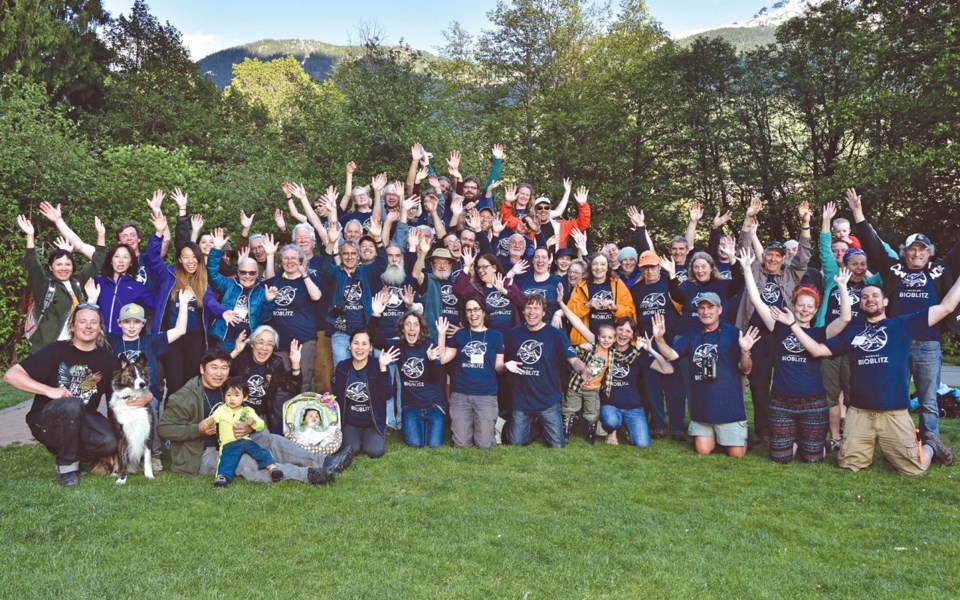For the second straight year, BioBlitz is heading into the classrooms—to the delight of junior scientists across the valley.
This year's BioBlitz will feature scientists sharing their expertise with 20 classrooms and more than 500 students.
"We got lots of lovely thank you letters (last year)," said Kristina Swerhun, president of the Whistler Naturalists.
"It was funny, because we did 15 classrooms last year, and as soon as we put the word out, like 20 signed up right away."
The 12th annual celebration of Whistler's biodiversity—which sees scientists and volunteers scour the local ecosystem to count as many species as possible—is set for June 7 to 10.
Last year, blitzers counted 100 species never before recorded in Whistler.
"I think the total species list was close to 600," Swerhun said.
"What is really cool this year is we have an ant specialist, a beetle specialist and a mosquito specialist, and we've never had those specialists here before so we don't know what they're going to find."
In its 11 years, BioBlitz has recorded more than 4,000 known species—data that is invaluable for identifying species at risk as well as invasive species.
"By the end of this year I expect we'll have somewhere around 4,200 species documented in Whistler, of which at least one third would be from BioBlitz," said ecologist Bob Brett, founder of the Whistler Biodiversity Project and co-organizer of BioBlitz.
"It's been really important; it's found some rare species, (and) it's found species that weren't known by the province to exist in this area, so it increases scientists' and conservation biologists' understanding of which species are where, and therefore which species are at risk and need protection."
But putting the data to practical use can be difficult when you factor in development pressures and provincial and federal laws that lack teeth, Brett said.
"The problem right now is that Canada's Species at Risk Act only protects rare species on federal land, which is a miniscule amount of land," he said.
"So it really has to be the province that steps up. They have guidelines, suggestions, best-management practices, but nothing that really bites."
The province is currently working on an update to its own Species at Risk legislation, to which Brett submitted his own suggestions built from years of studying the local landscapes.
"I'm hopeful," he said. "(But) the cynic in me says that if they really came up with legislation that protects all species it would have such an impact on development that it would not be politically feasible."
Nevertheless, BioBlitz and its annual recordings serve a valuable purpose in educating the local public.
"With the data, (scientists are) going into classrooms and sharing it right away," Swerhun said.
"And we'll also have some junior scientists interning with scientists, so they learn what a day in the life is like for a field biologist."
This year's event is wide-ranging, with scientists doing the namesake blitzes in Whistler (Thursday and Friday), Pemberton (Saturday) and Brandywine Park (Sunday), along with school visits and free, expert presentations at Legends in Creekside.
On Friday at 7:30 p.m., wildlife biologist Bruce McLellan will present on grizzly bears and what they need to survive in increasingly developed landscapes, and on Saturday (also at 7:30 p.m.), a variety of scientists will present on topics like species at risk, alien species and their finds of the day.
On Saturday at 9:30 p.m., join the scientists in Alpha Lake Park to watch them catalogue everything that comes out at night.
Find more information at whistlernaturalists.ca.




